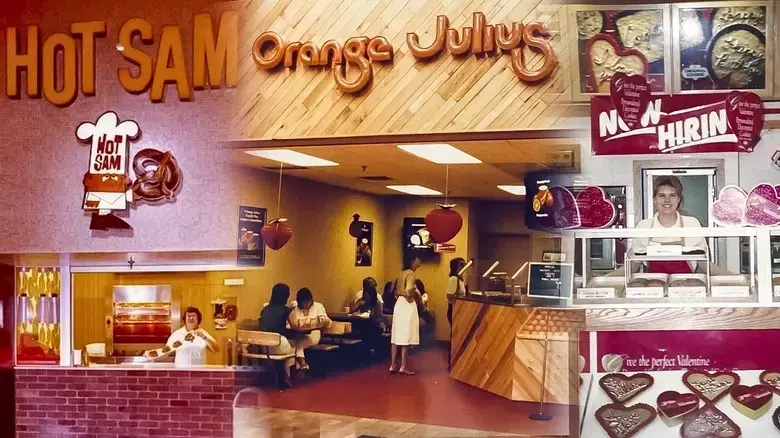The Evolution and Decline of Iconic Mall Food Court Chains

Shopping malls have been a cornerstone of American retail since the mid-20th century. While they faced challenges from online shopping and the COVID-19 pandemic, many are now experiencing a revival. Central to this resurgence is the transformation of food courts, which have seen significant changes in tenant composition. This article revisits some beloved mall food court chains that have faded into memory, exploring their rise and eventual decline.
The Rise and Fall of Ice Cream Parlors and Pretzel Stands
Mall-goers once enjoyed a variety of ice cream parlors and pretzel stands that became integral parts of their shopping experience. These establishments not only offered delicious treats but also provided memorable experiences for families and individuals alike. However, over time, many of these chains struggled to maintain their presence in the evolving retail landscape.
Farrell’s Ice Cream Parlour, which opened its doors in 1963, quickly became a favorite among shoppers with its nostalgic charm and signature dishes like The Trough, an enormous serving of ice cream. Despite its popularity, Farrell’s began closing locations in the 1980s and by 2019, the last two stores shut down. Similarly, Hot Sam Pretzels, founded in 1967, grew into a multi-million dollar business known for its diverse toppings. By 2006, however, most Hot Sam locations had disappeared or were rebranded as Pretzel Times and Pretzelmaker. Pretzel Time, another beloved chain, was acquired by NexCen Brands in 2007 and merged with Pretzelmaker, leading to a new identity and eventual expansion under the Pretzelmaker name.
Cafeterias and Specialty Food Chains: A Mixed Bag of Success and Failure
While some mall food court chains thrived, others faced financial difficulties and ultimately closed their doors. Cafeterias and specialty food chains played a significant role in shaping the dining experience within malls. Their stories reflect both the successes and failures that characterized the mall food court industry.
Wyatt’s Cafeteria, a family-friendly spot featured in “Stranger Things,” operated for about five decades before filing for bankruptcy in 1995. Despite attempts to revive it, Wyatt’s was eventually purchased by Luby’s, another cafeteria chain, and ceased operations in 2003. The Original Cookie Company, bought by Joseph Cole in 1977, expanded rapidly but struggled to compete with Mrs. Fields. In 1996, the two companies merged, leaving only a few original locations intact. Morrison’s Cafeteria, founded in 1920, pioneered the cafeteria-style restaurant and expanded into malls. However, changing consumer preferences led to its decline, and by the late 1990s, most locations were rebranded as Piccadilly Cafeterias.